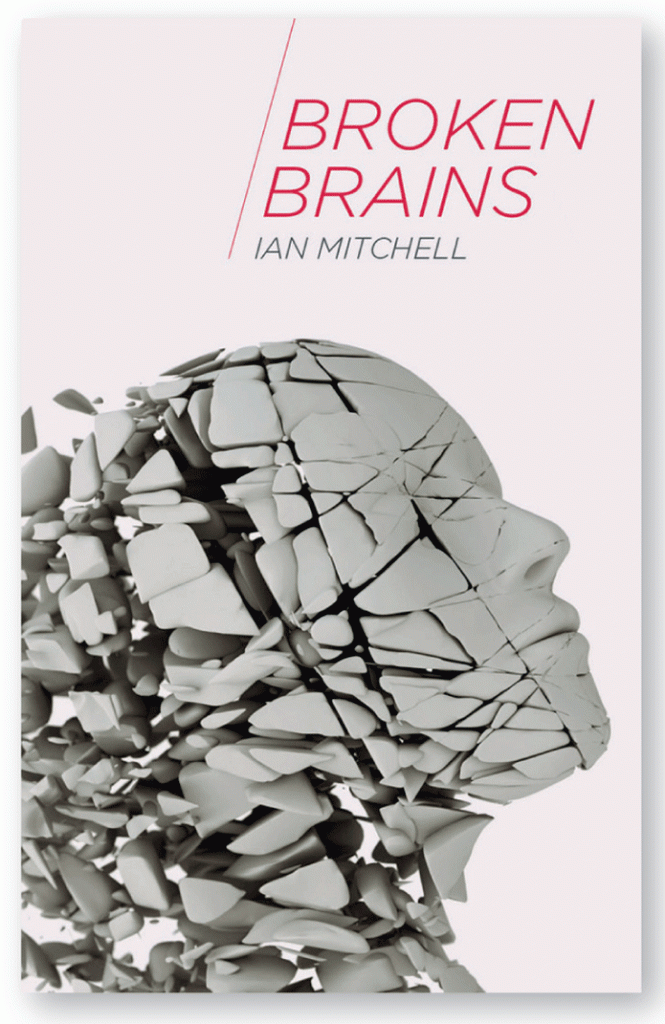Conversing with Hippocrates on the brain
It is not often that you meet an eminent author who invites you to join him for tea and biscuits and then regales you with an exceptionally interesting and intimate conversation about the mysteries of the brain. This is what Broken Brains feels like to its readers – a real treat for anyone who shares the author’s interests in Neuroscience.
Ian Mitchell is Senior Lecturer in the School of Psychology at the University of Birmingham with a genuine passion for the brain. He has published extensively on a range of brain-related topics, including the neurobiology of Parkinson’s disease and psychopathy, programmed cell death and social cognition. This original book encompasses a number of puzzling conditions which illustrate brain function in health and disease, while maintaining both the overview and the reductionist viewpoint of modern neuroscience. Its underlying philosophy is projected to future advances in the brain sciences without neglecting the most valuable lessons of the past. Indeed, echoes of early Hippocratic writings resound on many of its pages: “And men ought to know that from nothing else but from the brain come joys, delights, laughter and sports, and sorrows, griefs, despondency, and lamentations. And by this, in a special manner, we acquire wisdom and knowledge, and see and hear, and know […] what are bad and what are good, what are sweet, and what unsavoury […] And by the same organ we become mad and delirious, and fears and terrors assail us […] All these things we endure from the brain, when it is not healthy”. Just like his illustrious predecessor, Ian Mitchell masters the art of writing in a succinct and accessible way, without sacrificing scientific rigour. His narrative style is informative and entertaining, filled with engaging personal anecdotes from his wife’s experience as a renowned neurosurgeon and his own early career as an accomplished researcher.
The main goal of Broken Brains is to introduce readers to the consequences for our behaviour and personality when brain circuits break down. This is achieved by means of a grand tour through neuropsychiatric disorders familiar to the author, including Parkinson disease, Tourette syndrome, depression and psychopathy. A few features of the book deserve special mention. Each of the twelve chapters is closed by an up-to-date commented list of references, which often includes websites where readers can find more introductory material on the topic. Among the recommended websites there are links to the most popular and entertaining TED talks, thus making the reading experience truly engaging and interactive. Clear summaries inform the reader of what to expect in each chapter, whilst informative diagrams and box texts effectively illustrate the more challenging concepts. These are always interspersed with narrative entertainment, to ensure that learning about the secrets of the brain becomes a memorable and pleasurable experience. Finally, the glossary included at the end of the book is a useful appendix for readers who, despite lacking a professional background in neuroscience, could not resist the fascination of the brain.
As the author explicitly states, Broken Brains is primarily intended for university students beginning their studies in Psychology, Neurobiology, Medicine and allied disciplines. However, the book’s non-technical style makes it accessible and of interest to sixth formers, as well as the larger public.
ACNR 2015;15(4):8. Online 21/09/2015
